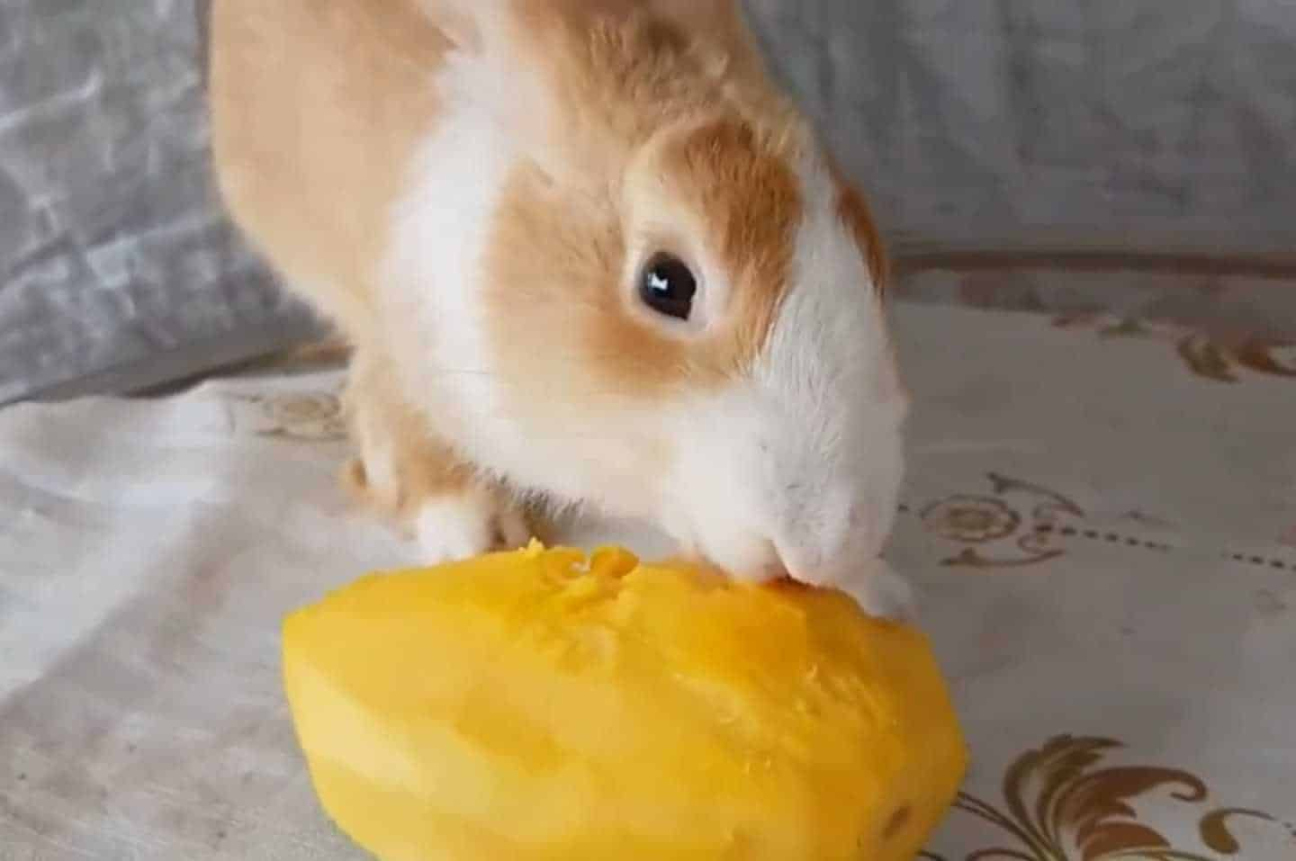Can Rabbits Have Mango?
Rabbits are herbivorous animals and their diet mainly consists of hay, fresh vegetables, and small amounts of fruits. While rabbits can enjoy a variety of fruits as an occasional treat, it is important to understand whether the mango is safe for them to consume. Mangoes are sweet and delicious fruits that are packed with nutrients, but are they suitable for rabbits?

Benefits of Mango for Rabbits
Mangoes are rich in vitamins and minerals, making them a nutritious choice for humans. However, when it comes to rabbits, mangoes should be given in moderation and as an occasional treat, as they are high in sugar content. Here are some potential benefits of mango for rabbits:
- Vitamin C: Mangoes are a good source of vitamin C which is essential for rabbits. This vitamin helps in the growth and repair of tissues and strengthens the immune system.
- Vitamin A: Mangoes also contain vitamin A, which is important for maintaining good vision and promoting healthy skin.
- Fiber: Although mangoes are not as high in fiber as leafy greens or hay, they still contain a small amount of dietary fiber that can aid in digestion.
Risks of Mango for Rabbits
While mangoes can provide some nutritional benefits to rabbits, there are also potential risks that need to be considered:
- Sugar Content: Mangoes are relatively high in sugar, and consuming too much sugar can lead to various health issues in rabbits, including obesity, digestive problems, and dental problems.
- Diarrhea: Introducing mangoes to a rabbit’s diet too quickly or in large quantities can cause digestive upset and diarrhea.
- Choking Hazard: Mangoes have a fibrous texture, and the presence of a large pit can pose a choking hazard to rabbits. It is important to remove the pit and cut the mango into small, bite-sized pieces before offering it to your rabbit.
How to Feed Mango to Rabbits
If you decide to offer your rabbit a small amount of mango as a treat, it is important to do so in a safe and controlled manner. Follow these guidelines:
- Choose a ripe mango that is not overly mushy or soft. Avoid giving your rabbit unripe or moldy mangoes.
- Thoroughly wash the mango to remove any pesticides or dirt residue.
- Peel the mango and remove the pit.
- Cut the mango into small, bite-sized pieces to minimize the risk of choking.
- Introduce the mango slowly into your rabbit’s diet, starting with a small piece to see how your rabbit reacts to it.
- If your rabbit shows signs of digestive upset or diarrhea after consuming mango, discontinue feeding it and consult your veterinarian.
Remember, mangoes should only be given as an occasional treat and should not make up a significant portion of your rabbit’s diet. A balanced diet consisting of hay, fresh vegetables, and limited fruits is essential for your rabbit’s overall health and well-being.
Frequently Asked Questions (FAQs)
1. Can rabbits eat mango skin?
No, it is not recommended to feed your rabbit mango skin. The skin is tough and can be difficult for rabbits to digest. Always remove the skin before offering mango to your rabbit.
2. Can mango cause allergies in rabbits?
While allergies to mango are rare in rabbits, it is still possible for them to have an allergic reaction. Watch for any signs of itching, swelling, or difficulty breathing after feeding your rabbit mango. If these symptoms occur, discontinue feeding mango and seek veterinary advice.
3. How often can I give mango to my rabbit?
Mango should only be given as an occasional treat, no more than once or twice a week. Moderation is key to avoid any adverse effects from the sugar content in mangoes.
4. Can I feed my rabbit mango leaves?
No, it is not recommended to feed your rabbit mango leaves. Mango leaves can be toxic to rabbits and may cause digestive issues. Stick to the fruit itself and avoid any other parts of the mango plant.
Related Articles…
Copyright Notice:
The images displayed here are sourced from the internet, with copyrights held by respective owners. For removal of any copyrighted image, please email us.